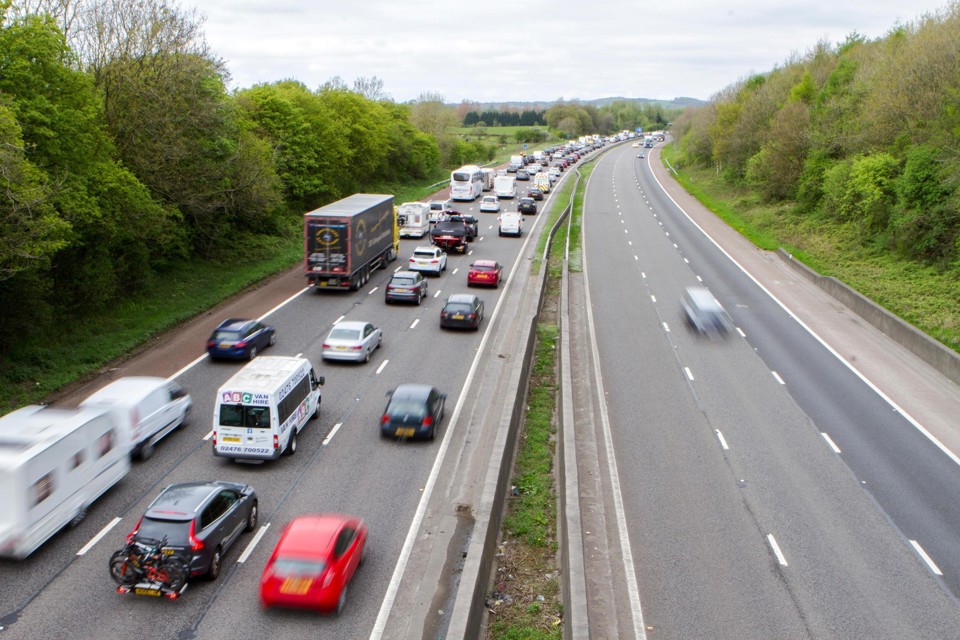The first meeting of the Net Zero Transport Board to help guide the decarbonisation of UK transport was held yesterday (Wednesday, July 8).
The board brings together leaders from a range of fields including behavioural change, environment, science, aviation and technology.
They will advise ministers at the Department for Transport (DfT) on what steps they feel Government should be taking to ensure a green recovery from coronavirus and the associated economic impact.
The board will also help shape and inform the transport decarbonisation plan coming later this year.
Transport secretary Grant Shapps said: “Transport has a huge part to play in tackling climate change and today’s meeting is another important step for this country on our road to net zero.
“Clearly, our ground-breaking transport decarbonisation plan must be shaped by the best brains and informed by the widest array of expertise and experience.
“I’m determined to build a greener, healthier, more prosperous Britain for future generations and I have no doubt that the Net Zero Transport Board will play an integral part in our green recovery.”
Last year, the UK became the first major economy in the world to pass laws to end its contribution to global warming by 2050. The target will require the UK to bring all greenhouse gas emissions to net zero by 2050, compared with the previous target of at least 80% reduction from 1990 levels.
The DfT’s Decarbonising Transport Setting the Challenge report laid out six strategic priorities in March:
- Accelerating modal shift to public and active travel. Public transport and active travel will be the natural first choice for daily activities. We will use cars less and be able to rely on a convenient, cost-effective and coherent public transport network, while encouraging cycling and walking for short journey.
- Decarbonisation of road vehicles. Support the transition to zero emission road vehicles through: regulatory framework, strong consumer base, market conditions, vehicle supply, refuelling and recharging infrastructure, and energy system readiness.
- Decarbonising how we get our goods. Goods will be delivered through an integrated, efficient and sustainable delivery system, considering future demand and changing consumer behaviour for goods. Also, to transform ‘last-mile’ deliveries, optimise logistics efficiency and explore digitally-enabled solutions, data sharing and collaborative platforms.
- Place-based solutions. Clean, place-based solutions will meet the needs of local people. Consider where, how and why emissions occur in specific locations and address emissions at a local level through local management of transport solutions with targeted support.
- UK as a hub for green transport technology and innovation. The UK will be an internationally recognised leader in environmentally sustainable, low carbon technology and innovation in transport.
- Reducing carbon in a global economy. Lead the development of sustainable biofuels, hybrid and electric aircraft to lessen and remove the impact of aviation on the environment and by 2050, zero emission ships will be commonplace globally.
Alongside the first meeting of the board, members of which include Stephen Joseph, chairman of Fleet News sister organisation Smart Transport, the Government is also providing an opportunity for the public to feed back their views online on the development of the transport decarbonisation plan to ensure that the plan works for everyone.
Transport minister Rachel Maclean said: "The Transport Net Zero Board will be a key component of our ‘greenprint’ for the future.
“The coronavirus pandemic has led to people making huge changes to the way they live, work and travel, and we want to capitalise and build on the new habits people have developed, as well as champion the power of new, cleaner technologies on our road to a green recovery.”
The Government has pledged to put a green recovery for transport at the heart of its plans, having already created a £2 billion fund for cycling and walking – the largest investment ever made in this area.
Read more about the Net Zero Board in the July digital edition of Fleet News.






















Login to comment
Comments
No comments have been made yet.